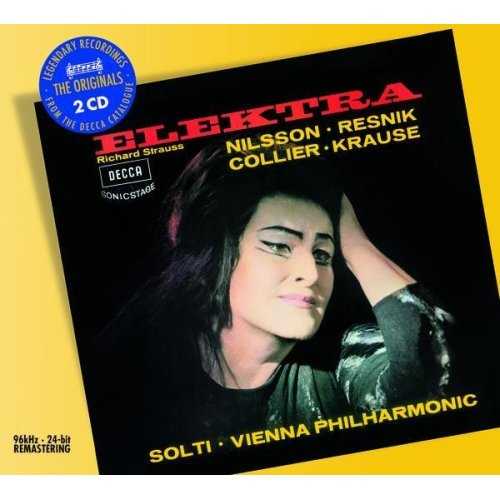
Performer: Birgit Nilsson, Felicia Weathers, Gerhard Stolze, Gerhard Unger, Helen Watts
Orchestra: Vienna Philharmonic Orchestra
Conductor: Georg Solti
Composer: Richard Strauss
Audio CD
SPARS Code: ADD
Number of Discs: 2
Format: APE (image+cue)
Label: Decca
Size: 484 MB
Recovery: +3%
Scan: no
CD 1
01. Wo bleibt Elektra
02. Allein! Weh, ganz allein
03. Elektra!
04. Ich kann nicht sitzen und ins Dunkel starren
05. Es geht ein Laerm los
06. Was willst du? Seht doch, dort!
07. Die Goetter! bist doch selber eine Goettin
08. Ich will nichts hoeren!
09. Ich habe keine guten Naechte
10. Wenn das rechte Blutopfer
11. Was bluten muss?
12. Was sagen sie ihr denn?
CD 2
01. Orest! Orest ist tot!
02. Platz da! Wer lungert so vor einer Tuer
03. Nun muss es hier von uns geschehn
04. Du! Du! denn du bist stark!
05. Nun denn, allein!
06. Was willst du, fremder Mensch
07. Elektra! Elektra
08. Orest!
09. Du wirst es tun Allein
10. Seid ihr von Sinnen
11. Ich habe ihm das Beil nicht geben koennen!
12. Es muss etwas geschehen sein
13. He! Lichter! Lichter!
14. Elektra! Schwester
15. Ob ich nich hoere
16. Hoerst du denn nicht, sie tragen ihn
17. Schweig, und tanze
Amazing
I bought this Elektra on LP when it first appeared in about 1967 and have treasured it ever since. The reason is Birgit Nilsson as Elektra. The reviewers who said it’s one of the great all time recorded performances are not exaggerating. Strauss wrote a work with an enormous orchestra in the pit, but the soprano singing the lead part has to be heard. What Strauss heard in his imagination and put on paper creates serious challenges for the lead. She needs extraordinary stamina, a superb upper register, volume, acting ability, good diction, and physical credibility in her death dance at the conclusion. Everything, in other words, except coloratura.
Nilsson is commanding throughout. She sings all the notes (there are no cuts in this version), sings them in tune, gets in the character’s skin. The role of Elektra has most of its other exponents sounding strained because of Strauss’s demands. However, Nilsson’s gleaming high register and extraordinary stamina allowed her to sing and act the part without forcing. Her subtle characterization matches the febrile intent of the libretto and music. Her exchanges with Klytaemnestra, taunting her with what will happen to her when Orest returns, are extraordinary–the diction, command of the notes, and the rapid tempo give a feverish and intense feeling, topped with a tremendous high C and B at the end of the scene. The recognition scene is equally compelling in its own way. Later, as her brother Orest strikes the fatal blows at Klytaemnestra offstage, Elektra’s cry for her brother to strike yet again is, well, electrifying. (Sorry about the pun). And those high notes! Was there anything ever like them? No swooping, no cheating, no cutting them off, no wobble. This is an extraordinary performance because it fully realizes what is in the score, and the human dimension implied in the libretto. Comparably great performances in recorded opera are few–very few. I’ve heard the other Elektras on CD; many have great virtues, but none puts the whole package together as Nilsson does.
Decca/London’s opera sets of the 60s during the John Culshaw era were theatrical for sure, and this one is no exception. It seems clear that this hyperdramatic opera was an irresistable temptation for the producer to go all out with vivid sound effects. Many of them are effective, but one can take or leave some of them. Marie Collier has a tense tone and overplays the neurotic side of Chrysothemis. Her electronically enhanced wailing at one point seems overdone. The bottom of the barrel echoes around Regina Resnik’s voice as she cries “Lichter, mehr Lichter” (Lights! More lights!) after her scene with Elektra are fairly extreme, too. Resnik is magnificent nonetheless as the creepy Klytaemnestra. If you know Gerhard Stolze from the Solti Ring or Salome you know what to expect of him as Klytaemnestra’s lover Aegisth. He plays Aegisth as an effete weakling. It’s pretty campy, but it works.
Solti is Solti. Give a conductor who loves drama a score like this, a unique lead soprano who can meet his demands, plus the Vienna Philharmonic, and fasten your seatbelt.
Can you tell I like this recording?
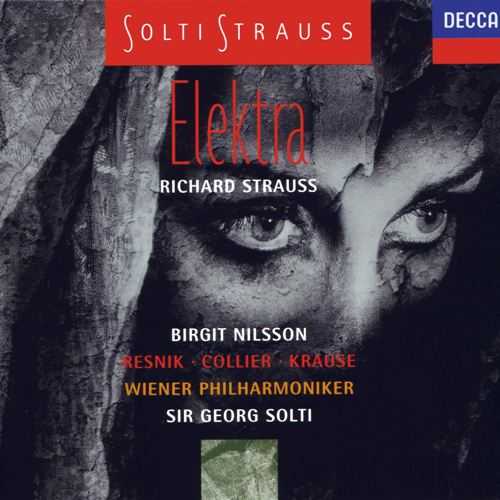
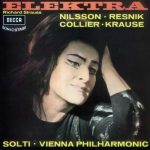
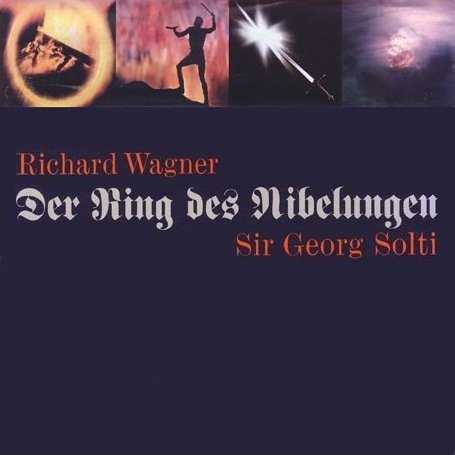
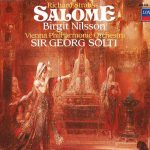
Great!